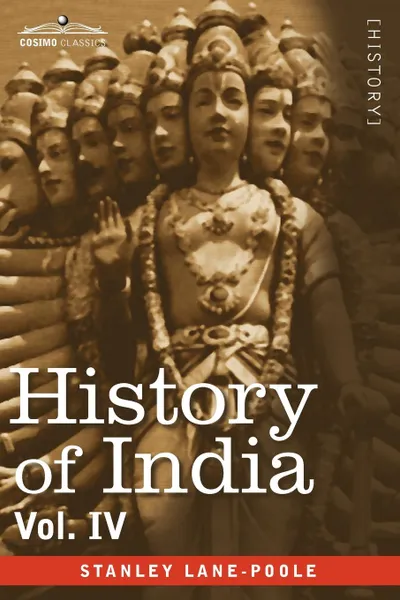History of India, in Nine Volumes. Vol. IV - Mediaeval India from the Mohammedan Conquest to the Reign of Akbar the Great 12+
Автор: Stanley Lane-Poole
2008
324 страницы
Категория: Научная литература
ISBN: 9781605204963
Язык: Английский
📒 The truth is that Akbar was singularly sensitive to religious impressions of every kind, and that his new religion, the Din-i-Ilahi, or “divine faith,” an eclectic pantheism, contained elements taken from very diverse creeds. While overthrowing nearly every ceremonial rule, whether of Islam or of Hinduism, and making almost all things lawful save excess, he took ideas from learned Brahmans as well as from Portuguese missionaries…—from Chapter II: “Akbar’s Reforms: The Divine Faith”First published in 1906, this classic nine-volume history of the nation of India places it among the storied lands of antiquity, alongside Egypt, China, and Mesopotamia. Edited by American academic ABRAHAM VALENTINE WILLIAMS JACKSON (1862–1937), professor of Indo-Iranian languages at Columbia University, it offers a highly readable narrative of the Indian people and culture through to the time of its publication, when the nation was still part of the British Empire.Volume IV, Part 2 of Mediæval India from the Mohammedan Conquest to the Reign of Akbar the Great, by British scholar STANLEY LANE-POOLE (1854-1931), features entertaining and enlightening treatments of:• the united empire of Akbar the Great• Akbar’s reforms: the divine faith• the great Moghul and European travellers• Shah Jahan the Magnificent• Aurangzib, the puritan emperor• the fall of the Moghul empire• and much more.This beautiful replica of the 1906 first edition includes all the original illustrations.
Мнения
